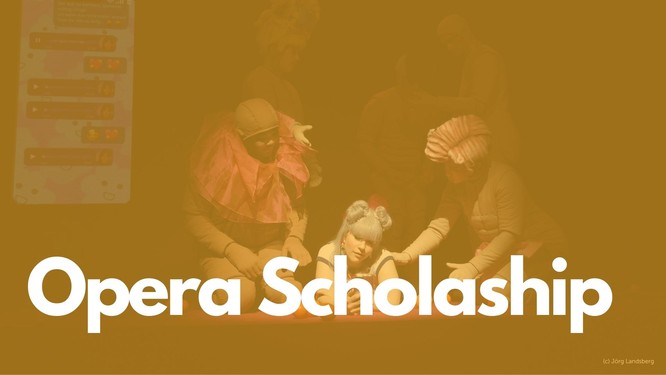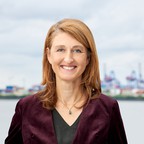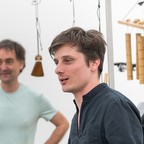
Through the Opera Scholarship, we support a combined composition and doctoral research project conducted in cooperation with the Hamburg State Opera (Hamburgische Staatsoper) and the Institute for Cultural Innovation Research at the Hamburg University of Music and Theatre (Hochschule für Musik und Theater Hamburg).
In 2025, the scholarship was awarded for the fourth time to Rachel C. Walker. Previous recipients are Samuel Penderbayne (2015), Lorenzo Romano (2018), and Clemens K. Thomas (2022). The academic component of the dissertation involves investigating the resulting work through an artistic research methodology that combines creative practice with scholarly reflection within the framework of our Dissertation Plus funding program.
The thematic focus of the current opera fellowship is the idea of the “Citizen’s Opera”: On the occasion of the 350th anniversary of the Hamburg State Opera—founded in 1678 at the initiative of Hamburg’s citizens as the first privately run opera house in Germany—this tradition of civic engagement will receive special recognition in the anniversary season of 2027/28. The commissioned work by Rachel C. Walker is envisioned as either a chamber opera, a site-specific urban opera, or a participatory music theater project. It is intended to reinterpret and embody the concept of the “Citizen’s Opera” in both conception and realization. Its integration into the urban space and the participatory potential of such an approach will also be examined within the framework of the artistic-academic doctoral project.
On the occasion of the 350th anniversary of the Hamburg State Opera in the 2027/28 season, the current call for applications invites composers to engage with the concept of the “Bürgeroper” (“civic opera”). Applicants are expected to critically reflect on this concept and incorporate it into the conception and composition of a new music theatre work. The aim is to create a new form of civic opera that either revisits the historical significance of the term and/or considers its contemporary, participatory dimensions.
The Concept of the Bürgeroper
The term Bürgeroper can be understood in two principal ways. Firstly, it refers to the Hamburg State Opera itself, whose historical roots are deeply embedded in the civic life of the city. On January 2, 1678, the Hamburg Opera at Gänsemarkt opened under the name Opern-Theatrum as the first privately operated opera house in Germany. Unlike many other European opera houses, which were typically reserved for aristocratic or courtly audiences, Hamburg’s opera was oriented from the beginning toward the urban citizenry. The city’s residents played an active role in organizing and supporting the institution, which is why it came to be known as a Bürgeroper—an opera by and for the citizens—an idea that was revolutionary for its time.
The Idea of Participation
Secondly, the term Bürgeroper is used today to describe participatory music theatre projects in which citizens—non-professionals without formal training in music or performance—are directly involved in the creative process and collaborate with professional artists. This form of theatre fosters a unique proximity between artists and audiences by dissolving traditional boundaries between the stage and the public. Members of the community are invited to contribute in diverse capacities, whether as singers and performers on stage or as part of the organizational and technical teams behind the scenes. One of the main goals of such projects is to make opera and music theatre more accessible to a broader audience and to actively include citizens in the artistic creation process. The intent is to establish opera as something to be experienced and shaped collaboratively by the city’s inhabitants.
Potential Performance Venues
A potential venue for the premiere of the newly developed civic opera is the opera stabile, the Hamburg State Opera’s smaller performance space. However, applicants are also encouraged to further develop the civic opera concept by, for example, designing a series of short operas to be performed at different locations across the city. This decentralized approach could serve to extend the notion of the Bürgeroper, engaging the public in new ways by staging opera not only in traditional venues, but also in public and unconventional urban spaces.
Ideally, the work should not only reflect on the concept of Bürgeroper in artistic terms, but also reinterpret it in relation to its integration into the urban landscape. At the same time, completely different and innovative interpretations of the concept are welcome. Applicants are free to determine how and to what extent they relate to the historical and participatory ideas outlined above.




